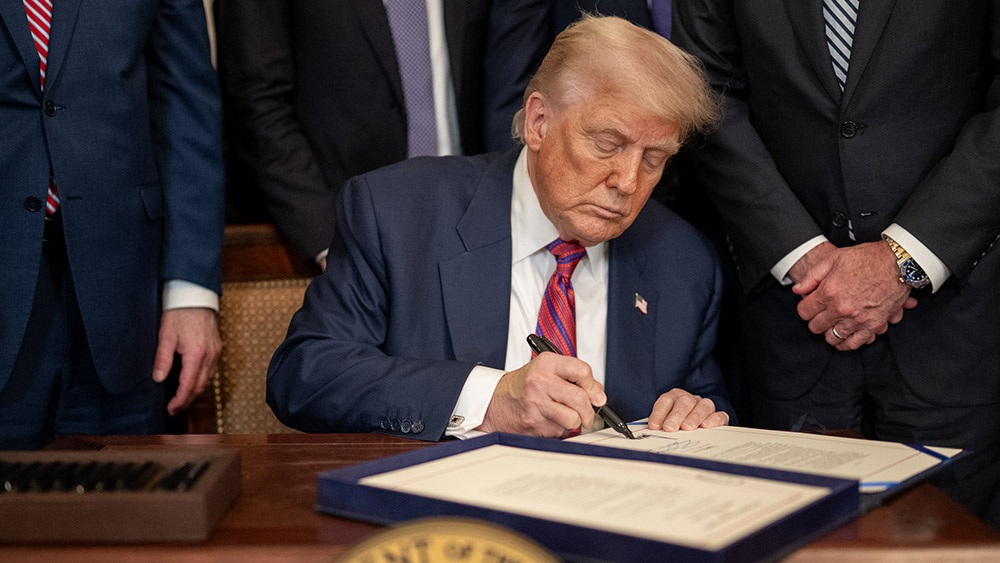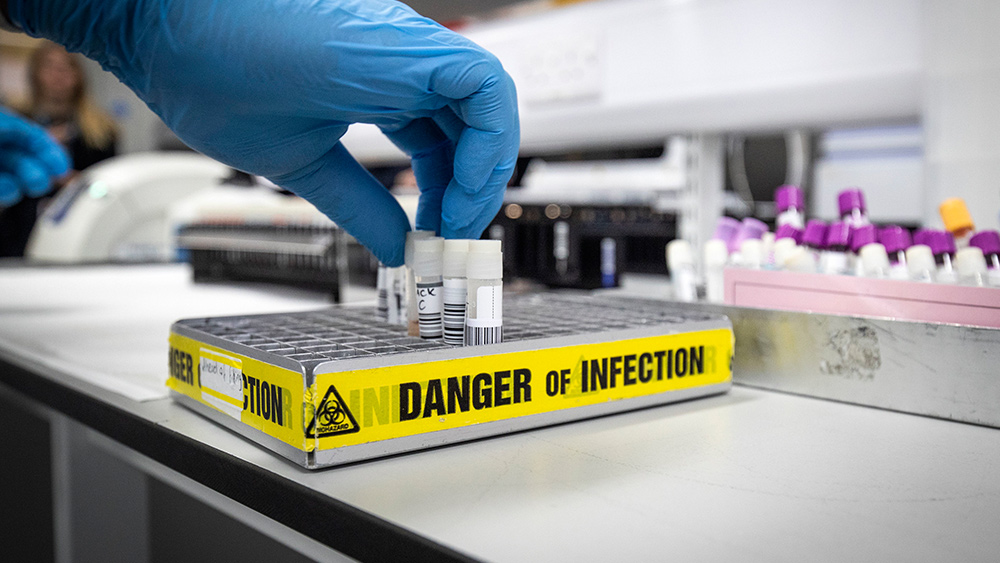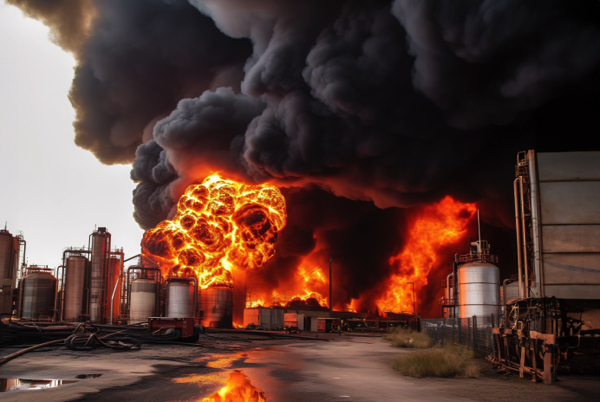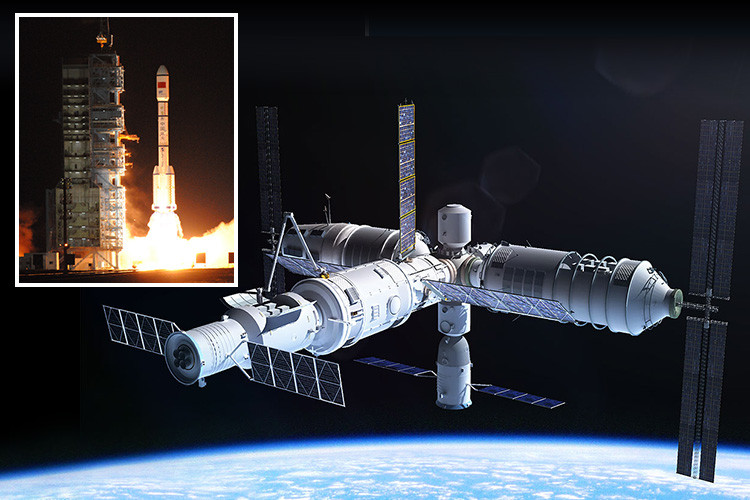 Parler
Parler Gab
Gab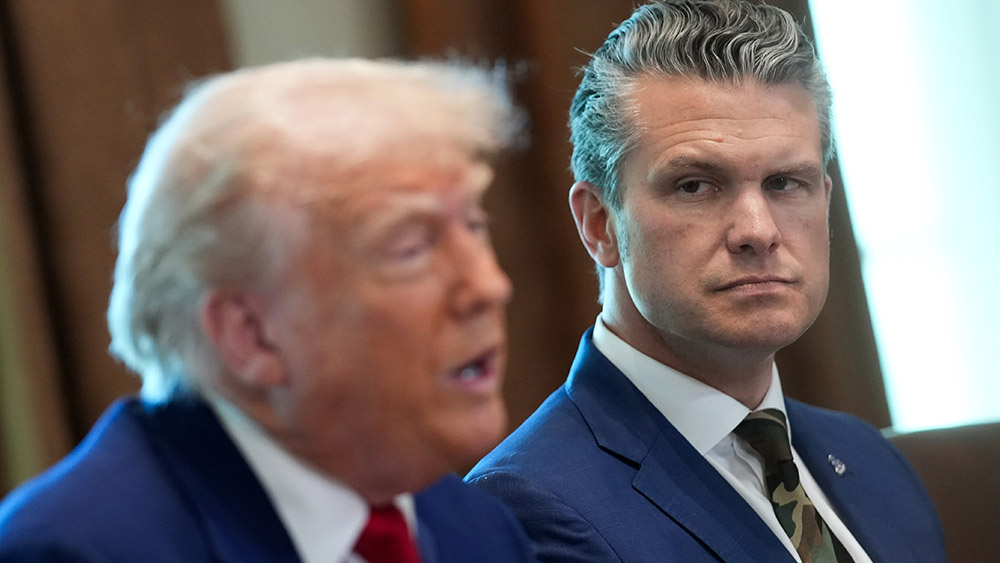
- President Donald Trump has ordered the Pentagon to resume U.S. nuclear weapons testing for the first time since 1992.
- The decision is framed as a response to the testing programs of other nations, specifically Russia and China.
- The announcement follows a recent Russian test of a new nuclear-capable, nuclear-powered underwater weapon.
- The move has drawn immediate criticism from lawmakers and contradicts previous U.S. non-proliferation stances.
- The Kremlin warned that Russia would "act accordingly" if the U.S. abandons the testing moratorium.
Justifying the resumption
President Trump framed the decision as a necessary response to the activities of other nuclear powers. “Because of other countries testing programs, I have instructed the Department of War to start testing our Nuclear Weapons on an equal basis,” Trump stated, adding that the process “will begin immediately.” He underscored the U.S. stockpile’s size but expressed a personal aversion to the action, writing, “Because of the tremendous destructive power, I HATED to do it, but had no choice!” The administration's position is that parity in testing is essential for maintaining a credible deterrent, noting that while China is currently a "distant third" in nuclear capacity, it is projected to reach parity with the U.S. and Russia within five years. The announcement came just a day after Russian President Vladimir Putin announced the test of the "Poseidon," a nuclear-powered and nuclear-capable underwater torpedo that Russian state media claims can trigger radioactive tsunamis. While the Kremlin clarified that this test involved the delivery system and not a nuclear explosion, it contributed to the atmosphere of escalating strategic weapons development that the Trump administration cited as its motivation.Historical context and immediate fallout
The United States last conducted an underground nuclear explosive test in 1992, after which President George H.W. Bush initiated a moratorium. Since then, the U.S. has relied on subcritical experiments and sophisticated computer simulations to ensure the reliability and safety of its nuclear arsenal under the Stockpile Stewardship Program. A return to live testing represents a dramatic break from this long-standing policy and risks triggering a new global arms race. The reaction from Moscow was swift. Kremlin spokesperson Dmitry Peskov noted the existing moratorium and stated, “Until now, we were not aware that anyone was testing anything.” He then pointedly recalled President Putin’s repeated warning: “if someone abandons the moratorium, Russia will act accordingly.” This sets the stage for a potential tit-for-tat cycle of testing between the world's two largest nuclear powers. On the domestic front, the decision was met with sharp criticism, particularly from lawmakers representing Nevada, the site of the nation’s primary nuclear test facility. Senator Jacky Rosen vowed to fight the move, stating it “directly contradicts” commitments she received from Trump nominees who previously testified that explosive testing was unnecessary.A broader geopolitical clash
This development occurs against a backdrop of heightened tensions between Washington and Moscow. Just last week, the Trump administration imposed new sanctions on two of Russia’s largest oil companies, Rosneft and Lukoil, citing Moscow’s refusal to engage seriously in peace talks to end the war in Ukraine. Treasury Secretary Scott Bessent stated the sanctions target companies that “fund the Kremlin’s war machine.” These actions, coupled with the nuclear testing order, illustrate an administration pursuing a hardline approach to Russia, even as President Trump has simultaneously expressed a desire for direct diplomacy with President Putin and a negotiated end to the conflict in Ukraine.An uncertain and perilous path forward
The resumption of U.S. nuclear testing carries profound implications for global security and non-proliferation efforts. It challenges decades of international norms and risks undermining key treaties, even those to which the U.S. is no longer a party, such as the Comprehensive Nuclear-Test-Ban Treaty. For national security experts, the move raises critical questions about its strategic necessity versus its potential to destabilize the delicate balance of nuclear deterrence. As the world watches, the decision pushes the nation into uncharted territory, potentially unraveling a long-held taboo and opening a new, dangerous chapter in the nuclear age where live tests once again become a tool of geopolitical leverage. Sources for this article include: Modernity.com DailyCaller.com NBCnews.comThe great NGO purge: Layoffs hit 22-year high as funding freezes amid RICO threats
By Willow Tohi // Share
A decade-long fight: Scientist’s memoir alleges Pfizer cover-up of lab infection
By Willow Tohi // Share
China’s rare earth DOMINANCE threatens U.S. prosperity
By Lance D Johnson // Share
Ukraine launches long-range drone strike on major Russian oil refinery in Volgograd
By Patrick Lewis // Share
Chinese astronauts stranded in space after orbital debris strikes return capsule
By Kevin Hughes // Share
Governments continue to obscure COVID-19 vaccine data amid rising concerns over excess deaths
By patricklewis // Share
Tech giant Microsoft backs EXTINCTION with its support of carbon capture programs
By ramontomeydw // Share
Germany to resume arms exports to Israel despite repeated ceasefire violations
By isabelle // Share
